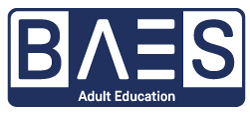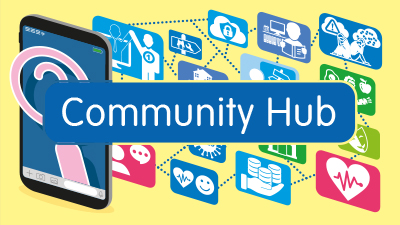Reading for Wellbeing
Reading for Wellbeing
This short course of 10 hours will be delivered 1 day a week for four weeks. Each session will include a short story, or an extract from a book, plus a poem. The session will take place via Zoom, and participants will be encouraged to answer questions within the group to explore the various themes raised in the texts. There is no reading required between sessions.
Course aims
The aims of the course are:
- To encourage reading group participants to connect with each other and express thoughts and opinions on the reading material.
- To encourage participants to reflect on everyday wellbeing themes through the content of the stories and poems selected for the sessions and the suggested discussion questions that accompany them.
- To encourage further reading of or listening to stories/poems.
What could this course lead to?
If you want to improve other English skills, you could join a Functional Skills English course. These are available at Entry Level 1, Entry Level 2, Entry Level 3, Level 1 and Level 2. You will need to take an Initial Assessment to determine which level would be most appropriate.
Course requirements
A PC/laptop/tablet and basic IT skills to be able to navigate the internet and download and use apps.
Be able to read and follow instructions independently.
Poetry Writing
Creative Writing: Poetry Writing
Course aims
This short course of 10 hours will not only introduce you to a wide range of poetry but will also give you the opportunity to explore the language features used in poetry and – best of all - have a go at writing some poetry of your own. In each session, you will discover a different feature of poetry, and be taught how you can use them when writing your own poetry.
During the course you will:
- Explore and discuss a range of features of poetry.
- Learn how to use descriptive language to create vivid images.
- Read a variety of poetry and examine how language/rhyme are used
- Write your own poetry using different formsReceive feedback on how to improve your poetry.
Course length
10 hours, split over 4 sessions
What could this course lead to?
If you want to improve other English skills, you could join a Functional Skills English course. These are available at Entry Level 1, Entry Level 2, Entry Level 3, Level 1 and Level 2.
You will need to take an Initial Assessment to determine which level would be most appropriate.
Course requirements
A PC/laptop/tablet and basic IT skills to be able to navigate the internet and download and use apps.
Be able to read and follow instructions independently.
English Pathways - Entry Level 1 to Level 2
English Pathways - Entry Level 1 to Level 2
We recommend a year-long pathway to develop your English skills and knowledge. The English Pathways include: Becoming a Digital Learner; Grammar, Spelling and Vocabulary, and English Functional Skills, which includes an integrated project.
Becoming a Digital Learner
This will take place in the first 3-4 weeks of the course (15 Guided Learning Hours)
This part of the course will give you the opportunity to get to know our IT systems, enable you to devise a personal plan that sets realistic targets for your English course and gives you an opportunity to review achievements and aspirations for life and work.
Equality and Diversity/Health and Wellbeing
This course will be 2-3 weeks long.
This short course will provide you with a qualification and covers important topics for life and work.
Grammar, Spelling and Vocabulary
This course will contain up to 50 Guided Learning Hours.
This course will enable you to improve your spelling and grammar skills and to develop your vocabulary. You will explore grammar, punctuation and sentence structure in order to express your ideas clearly. You will learn new vocabulary to improve communication skills and learn spelling strategies, which are essential skills for the workplace.
Community Course
This course will run for two weeks.
This short course will allow you to apply your English skills on a small community project.
English Functional Skills
This course will contain up to 75 Guided Learning Hours
Course aims:
- To improve your reading, writing and communication skills in real life contexts
- To set goals to help you develop the English skills that you need in everyday life and work.
- To gain a nationally recognised Functional Skills qualification. For more details see the Functional Skills Course Information sheet.
- To join a Functional Skills course you will need to pass an English assessment.
Support if you are registered unemployed, looking for a job or a better job – Route to Work
As part of your programme of learning, we will support you to develop the skills you need to get a job or a better job, such as CV writing, application forms, interviews and working in a team. Your tutor will discuss your individual learning and development needs to agree with you which of our Route to Work short courses will best suit your needs and enrol you onto these modules.
English - Functional Skills
English Functional Skills – Entry 1 to Level 2
There are three different modes of delivery.
English Pathway: Build and develop your skills with this year-long course which finishes with Functional Skills. Available at Entry 1 to Level 2. This course includes a two week project to develop your skills.
Once a week courses: In addition to attending sessions once a week, this year-long course requires you to access online learning resources between sessions to conduct independent study. Available at Level 1 and Level 2.
Fast-track: For learners who already have established English skills, but need to gain a qualification quickly. In addition to attending sessions once a week, this course requires you to access online learning resources between sessions to conduct independent study. Available at Level 2.
Course aims
- To improve your reading, writing and verbal communication skills in real-life contexts
- To set goals to help you develop the English skills YOU need in everyday life and at work
- To achieve a Functional Skills English qualification
- To help prepare you for study at higher levels
Who is this course for?
Adults (19+) who would like to develop their English skills for everyday life and work and gain a qualification.
Will I gain any qualification?
You will work towards a qualification in Functional Skills English. There are written assessments in reading and writing. There are also speaking and listening assessments, such as discussions or presentations. You will be given the opportunity to practise for the formal exams and complete coursework to further develop your skills. All our English courses embed development of study, IT and job skills to help prepare you for study at higher levels and improve work prospects.
Do I need any prior knowledge, skills or qualifications?
Your reading and writing skills will be assessed before you join the course to make sure that the course is the right level for you.
Content
By the end of the course you will be able to:
- Read and understand a range of texts
- Identify the purpose and features of different sorts of text
- Read to identify different points of view and persuasive techniques
- Consider your audience and use appropriate style and features to produce effective texts such as notes, letters, emails, blogs, reports and leaflets
- Develop your communication skills and confidence to take part in group discussions, or give talks or presentations
- Know and use strategies to improve your spelling
- Write better sentences, using accurate grammar and punctuation so that meaning is clear
What could this course lead to?
- Progression to a higher level English course which are available at Entry 1, Entry 2, Entry 3, Level 1 and Level 2 Functional Skills and GCSE English Language.
- Gaining employment, an apprenticeship or voluntary work.
- Other vocational study with BAES for example Customer Service, Diploma in Healthcare Support, Computerised Accounts to improve your job skills and employability
- Further study with other providers in further or higher education
How will I learn?
- Through a combination of individual work, group work, class discussions and use of e-learning tools.
- You will have an Individual Learning Plan (eTrackr) which sets targets that are personal to you and a Career Plan to help you achieve your goals for the future
- Targets will be added throughout the course to develop your English skills and support your journey to achieve long term goals
- Your tutor will give you regular feedback on what you are doing well and what you need to do to improve
What is required of me as a learner?
You will review your learning with your tutor at least once a term.
Bring along paper, pen and ring binder plus, if possible, bring your own device (smartphone or tablet) to access online dictionaries and apps to support your English learning in class. You will also need to be prepared to do some study at home between classes. If you are enrolled on a Once a Week course or a Fast-track Learning course you are also expected to spend three hours per week on independent study.
We expect all students to attend on time and attend every session. If you are unable to attend a session, you will be required to email your tutor with the reason for non-attendance and the tutor will set additional work to be completed at home.
Support if you are registered unemployed, looking for a job or a better job – Route to Work
As part of your programme of learning, we will support you to develop the skills you need to get a job or a better job, such as CV writing, application forms, interviews and working in a team. Your tutor will discuss your individual learning and development needs to agree with you which of our Route to Work short courses will best suit your needs and enrol you onto these modules.
Useful website(s)
www.bbc.co.uk/skillswise/english
https://esol.britishcouncil.org/
http://qualifications.pearson.com/en/qualifications/edexcel-functional-skills.html
Contact details
Get in touch with the BAES Information Line by calling 0121 303 4318 or emailing This email address is being protected from spambots. You need JavaScript enabled to view it.
English GCSE
GCSE English Language
Who is the qualification for?
Anyone aiming to study at university and/or improve jobs prospects.
Do I need any prior knowledge or qualifications?
No prior qualification is needed. You will complete an initial assessment before joining the course. This is to assess if GCSE English is the right course for you and if it is, which class is the most suitable for you.
Please note: to study GCSE English, it is important you have good grammar skills. This means that sentences are clear and understandable. It is because there is not a lot of time to improve grammar on the course.
How much does the course cost?
It is free if you do not already have a Grade 4 (which is the same as a Grade C).
How will I be assessed on the course?
You will complete two exam papers, which take place between the end of May and early June. There is no coursework.
Paper One:
- Read and analyse the language and structure of a piece of fiction
- Write a piece of creative writing
Paper Two:
- Read and analyse the language of a non-fiction text; this includes articles, letters, speeches...
- Write a piece of persuasive writing
To help prepare for the exam papers, you will complete a progress assessment every half term. This is so you, and your teacher, can see how well you have understood the work and help you to improve.
What classes do we offer?
Onsite:
Most of our daytime classes will be in our centres. You need to attend twice a week. Each class is 2.5hrs.
Online:
Most of our online courses are weekday evenings and Saturday daytimes for 3hrs.
Once every half term you will need to attend in person for progress assessments. It is therefore important you choose a centre you can easily get to.
Because the course is mostly online, you will need good IT skills. You will also need a reliable internet connection and quiet workspace.
Whether you learn online or onsite, there will be a mix of group and individual work, focused on developing the skills you need to pass the exams and succeed in life.
What do we expect from you?
You must be able to attend every week and complete all work. Class time and homework would be 5-7 hours a week.
If you work or are doing other courses, ensure you can dedicate enough time to the course. This will give you the best opportunity of passing.
What could this course lead to?
The course can lead to A Levels, BTECs and Access courses, Higher Education and employment.
Route to Work: support if you are registered unemployed, looking for a job or a better job –
As part of your programme of learning, we will support you to develop the skills you need to get a job or a better job, such as CV writing, application forms, interviews and working in a team. Your tutor will discuss your individual learning and development needs to agree with you which of our Route to Work short courses will best suit your needs and enrol you onto these modules.
Other information
You must book and attend an Initial Assessment which will take place before the course starts. Please email This email address is being protected from spambots. You need JavaScript enabled to view it. or call the Information Line on 0121 303 4318.
Useful websites
AQA Exam Board: www.aqa.org.uk/8700
Open University online course to develop reading and writing skills needed for study at university:https://www.open.edu/openlearn/languages/everyday-english-2/contentsection-overview-0?active-tab=description-tab
BBC Bitesize: https://www.bbc.co.uk/education/examspecs/zcbchv4
Birmingham Adult Education Service: www.learnbaes.ac.uk
















